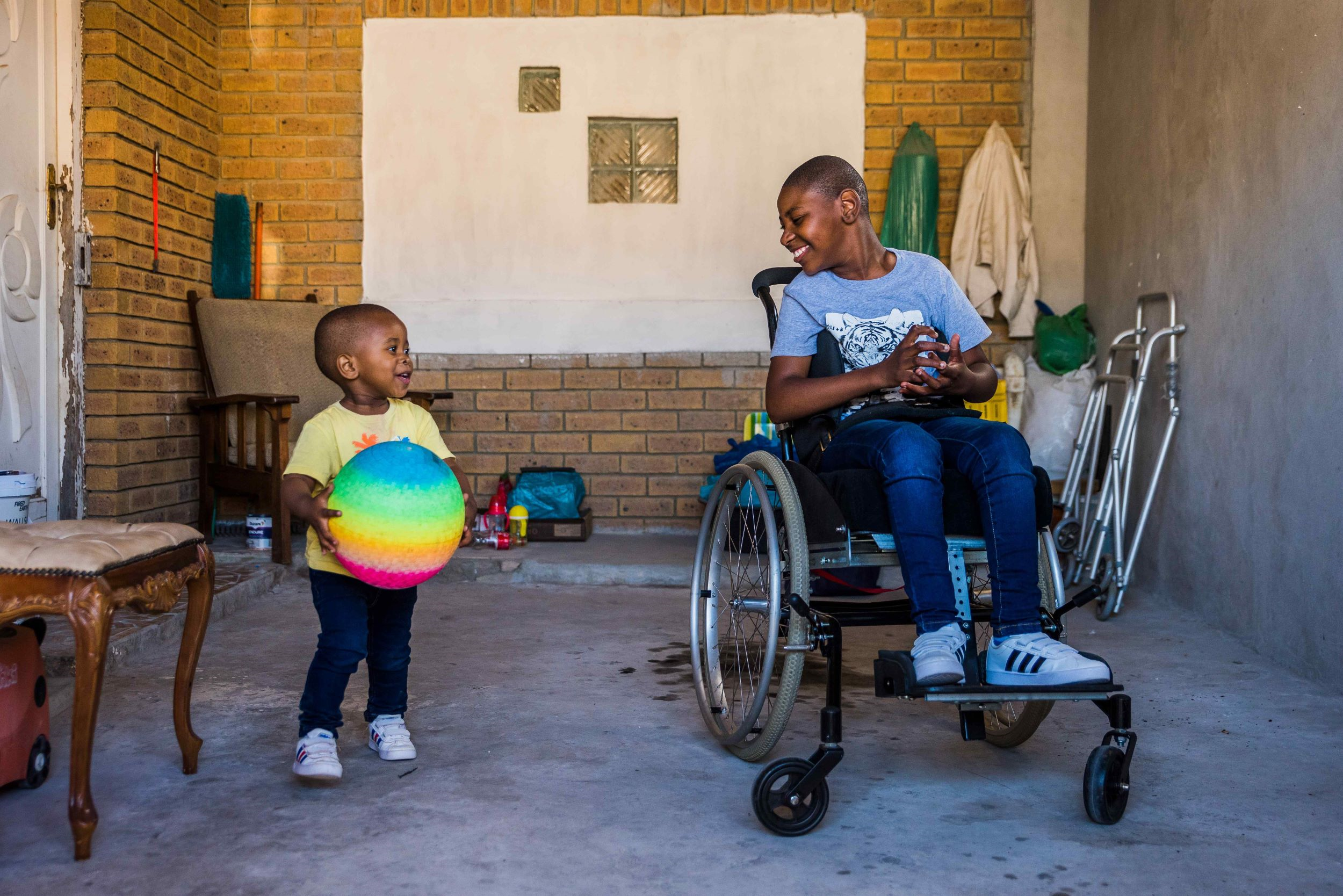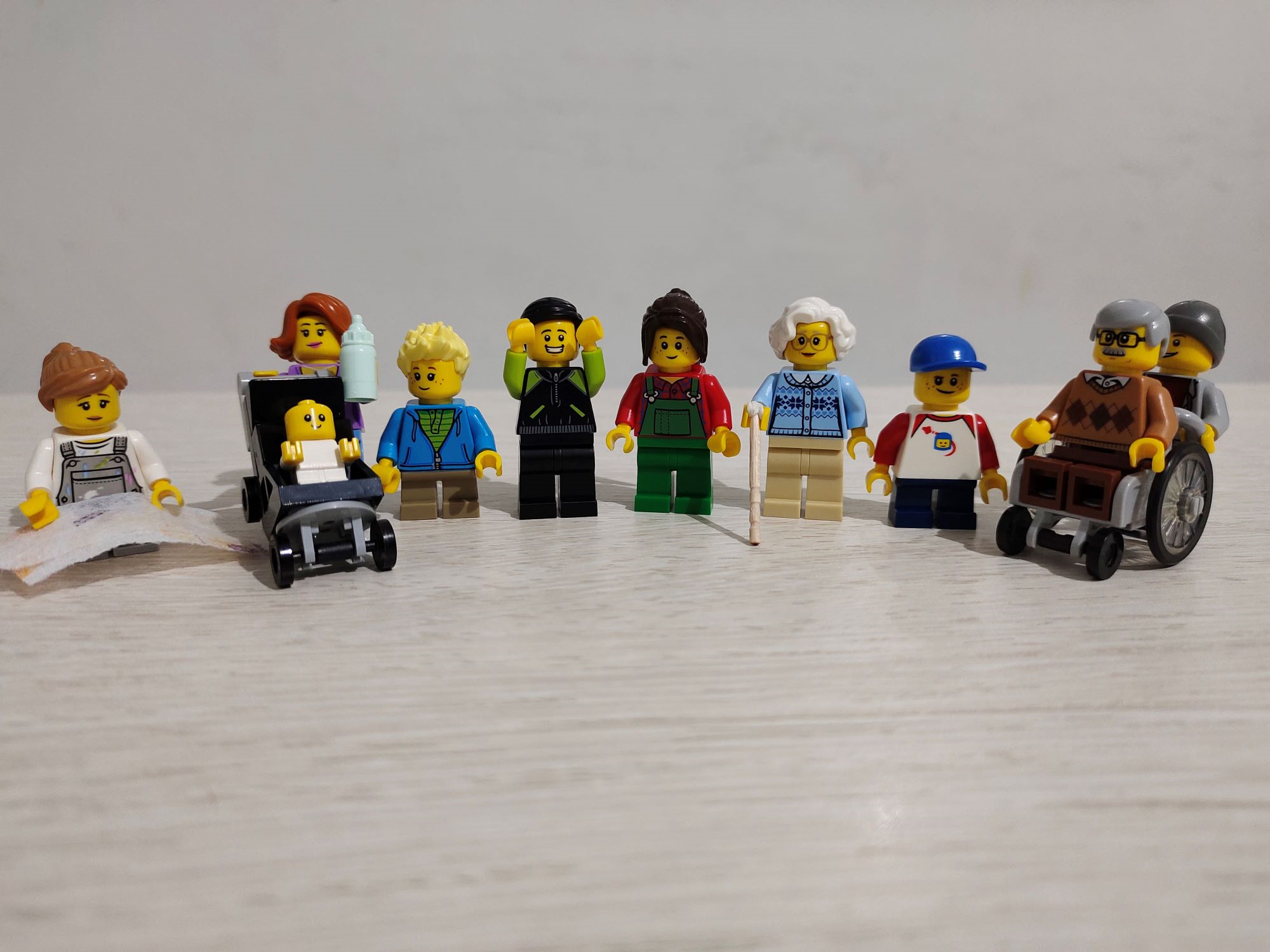Assistive technology access gets a boost thanks to £12 million investment from the LEGO Foundation, five years after AT2030 begins
In 2018, the Global Disability Innovation Hub (GDI Hub) and the Clinton Health Access Initiative (CHAI), alongside the World Health Organization and UNICEF came together to start thinking about how we could increase access to assistive technology (AT). At the time, it was estimated that one billion people needed some form of AT. Yet only one in 10 had access in low-and middle-income countries. Today, based on more recent surveys, the number has been adjusted to 2.5 billion people—with just three percent having access in some countries.
A bold team from UK Aid was serious about tackling this problem and commissioned an innovative programme to test ‘what works’ in getting AT to the millions that needed it around the world.
After an initial scoping report and months of planning, we forged a multi-sector partnership, led by GDI Hub, that eventually got awarded £10 million to implement ‘AT 2030: Life Changing Assistive Technology for All’. The programme was announced by the UK Prime Minister at the first-ever Global Disability Summit, which was held in London that summer of 2018. The programme investment by UK Aid was soon doubled to £20 million, with a goal to be match by the partnership.
AT2030, now in its fifth year, has reached one million people directly, and more then 22 million indirectly. We’ve raised over 15 million in match funding, supported new ventures to market, driven ecosystems and research, built data and new knowledge, scaled innovations and advocated for Disability Innovation on a global scale.
The partnership between GDI Hub and CHAI has been a great example of how complementary capabilities and experiences can fuel transformational change. GDI Hub introduced CHAI to the AT sector—sharing what had and had not worked in other disability projects, seconding a team member, and building on lessons from the London 2012 Paralympics, and through the technical expertise of the team. Meanwhile, CHAI leaned into its long-time expertise in market shaping and history of working with governments to create and sustain high-quality systems. Like any partnership where organizations come from different sectors, it was not always simple, but we were committed because of a common purpose. So many people needed AT and so few had it, including millions of children.
In 2023, five years after the partnership began, we take another step forward in closing the AT gap for millions of people that need it most. Building on the work that was done through AT2030, CHAI is partnering with the LEGO Foundation, GDI Hub, and other partners to increase access to AT for children under six years old. All children have the right to play. Yet in parts of the world millions of children with disabilities are denied the right to play, learn, and thrive because they do not have the AT they need. AT for children is one of the largest, neglected gaps in global development. CHAI is working with governments and communities in eight countries – Ethiopia, Indonesia, Kenya, Liberia, Nigeria, Rwanda, Sierra Leone, South Africa - that are committed to addressing this growing gap to identify disabilities early, provide early access to appropriate AT, and increase access to play experiences. In all eight countries, the critical foundations for this programme were laid under AT2030. Like in most low-and middle-income countries, despite commitments made via Convention on the Rights of Persons with Disabilities, AT was not on government agendas. A lack of awareness about the need for AT and available solutions as well as limited coordination, led to a fragmented space where most services and products were delivered by charitable organizations outside of government systems.
This approach is not sustainable and not scalable.

Under AT2030, a different approach was tested to address these underlying gaps, making direct investments in activities, which deliver strategic, agreed national AT priorities. The results are remarkable, leading to countries launching first-of-their kind product lists, developing new data systems, and creating regulation for better quality provision. In addition, governments have expanded with new staff focused on AT and service centers are being established across the African continent.
As we look towards the next five years there remains much to do. AT2030 highlighted innovations for low-resource settings – both for the delivery of AT, as well as AT itself, including new data tools such as the functional limitation tool – that have the potential to be disruptive. But critical evidence is missing on how these can successfully integrate in public sector systems. The progress that was made via AT2030 provides a context to further investigate this in several countries and much work is needed to unlock the potential of digital AT. GDI Hub and CHAI are ready to double our efforts to making affordable lifechanging AT available for all people who need it, advancing ‘what works’.
This partnership is ready for the next five years.

Image: Community initiative of an inclusive design project in Pelambuan, Indonesia. Photographed by AT2030 partner Kota Kita. The initiative was built on the shared aspirations identified by research participants for inclusive public spaces. Being part of the design process was cited by participants as an important knowledge sharing and learning experience.